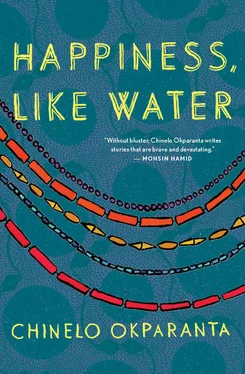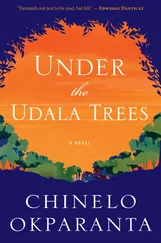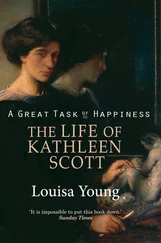That first day, we spent our lunch break together, and for the rest of the week we did the same, me sharing my fried plantain with her, and she, her rice and stew with me.
She started to visit me at my flat after her week at the school was up. She’d stop by every other week or so, on the weekends when we could spend more than a few hours together. I’d make us dinner, jollof rice, beans and yams, maybe some garri and soup. We’d spend the evening chatting or just watching the news. Sometimes we’d walk around the neighbourhood and when we returned, she’d pack her things and leave.
I grew a big enough garden in my backyard. Pineapple leaves stuck out in spikes from the earth, neat rows of them. Plantain trees stood just behind the pineapple leaves. Behind the plantain trees, lining the wall leading up to the gate of the flat, an orange tree grew, and a guava tree, and a mango tree.
Once, while we stood plucking a ripe mango, Gloria asked me what it was like to teach science at the school. Did we conduct experiments or just study from a book? Were all of the students able to afford the books? It was a private school, she knew, but she suspected (quite accurately) that that didn’t mean all the students were able to afford the texts.
I straightened up to face the wall that led up to the metal gate. Lizards were racing up and down. I told her that teaching was not my job of choice. That I’d rather be doing something more hands-on, working directly with the earth, like in my garden. Maybe something to do with the environment, with aquatic ecology: running water-quality reports, performing stream classification, restoration, wetland determinations, delineations, design and monitoring. But there were none of those jobs during the time I did my job search, even though there should have been plenty of them, especially with the way things were going for the Niger Delta.
But even if the jobs had been available, I said, perhaps they would have been too dangerous for me, with all that bunkering going on, criminal gangs tapping the oil straight from the pipelines and transporting it abroad to be sold illegally. The rebel militias stealing the oil, and refining it, and selling it to help pay for their weapons. All those explosions from old oil rigs that had been left abandoned by Shell. Perhaps it would have been too dangerous a thing.
She was standing with her hands on her hips, showing surprise only with her eyes. I suppose it was understandable that she would have assumed I loved my job to have stayed those many years.
We became something — an item, Papa says — in February, months after Gloria’s visit to the school. That evening, I was hunched over, sweeping my apartment with a broom, the native kind, made from the raw and dry stems of palm leaves, tied together at the thick end with a bamboo string. I imagine it’s the kind of broom that Gloria no longer sees, the kind that Americans have probably never seen.
Gloria must have come in through the back door of the flat (she often did), through the kitchen and into the parlour. I was about to collect the dirt into the dustpan when she entered.
She brought with her a cake, a small one with white icing and spirals of silver and gold. On top of it was a white-striped candle, moulded in the shape of the number thirty-four. She set it on the coffee table in the parlour and carefully lit the wick.
I set the broom and dustpan down and straightened up. Gloria reached out to tuck strands of my tattered hair back into place. I’d barely blown out the flame when she dipped her finger into the cake’s icing and took a taste of it. Then she dipped her finger into the icing again and held the clump out to me.
‘Take,’ she said, almost in a whisper, smiling her shyest sort of smile.
Just then, the phone began to ring: a soft, buzzing sound. We heard the ring but neither of us turned to answer, because even as it was ringing, I was kissing the icing off Gloria’s finger. By the time the ringing was done, I was kissing it off her lips.
Mama still reminds me every once in a while that there are penalties in Nigeria for that sort of thing. And of course, she’s right. I’ve read of them in the newspapers and have heard of them on the news. Still, sometimes I want to ask her to explain to me what she means by ‘that sort of thing’, as if it is something so terrible that it does not deserve a name, as if it is so unclean that it cannot be termed ‘love’. But then I remember that evening and I cringe, because, of course, I know she can explain; she’s seen it with her eyes.
That evening, the phone rings, and if I had answered, it would have been Mama on the line. But instead, I remain with Gloria, allowing her to trace her fingers across my brows, allowing her to trace my lips with her own. My heart thumps in my chest and I feel the thumping of her heart. She runs her fingers down my belly, lifting my blouse slightly, hardly a lift at all. And then her hand is travelling lower, and I feel myself tightening, and I feel the pounding all over me. Suddenly, Mama is calling my name, calling it loudly, so that I have to look up to see if I’m not just hearing things. We have made our way to the sofa and, from there, I see Mama shaking her head, telling me that the wind has blown and the bottom of the fowl has been exposed.
Mama stands where she is for just a moment longer; all the while she is staring at me with a sombre look in her eyes. ‘So, this is why you won’t take a husband?’ she asks. It is an interesting thought, but not one I’d ever really considered. Left to myself, I would have said that I’d just not found the right man. But it’s not that I’d ever been particularly interested in dating men anyway.
‘A woman and a woman cannot bear children,’ Mama says to me. ‘That’s not the way it works.’ As she stomps out of the room, she says again, ‘The wind has blown and the bottom of the fowl has been exposed.’
I lean my head on the glass window of the bus and I try to imagine how the interview will go. But every so often the bus hits a bump and jolts me out of my thoughts.
There is a woman sitting to the right of me. Her scent is strong, somewhat like the scent of fish. She wears a head scarf, which she uses to wipe the beads of sweat that form on her face. Mama used to sweat like this. Sometimes she’d call me to bring her a cup of ice. She’d chew on the blocks of ice, one after the other, and then request another cup. It was the real curse of womanhood, she said. The heart palpitations, the dizzy spells, the sweating that came with the cessation of the flow. That was the real curse. Cramps were nothing in comparison, she said.
The woman next to me wipes her sweat again. I catch a strong whiff of her putrid scent. She leans her head on the seat in front of her, and I ask her if everything is fine.
‘The baby,’ she says, lifting her head back up. She rubs her belly and mutters something under her breath.
‘Congratulations,’ I say. And after a few seconds I add, ‘I’m sorry you’re not feeling well.’
She tells me that it comes with the territory. That it’s been two years since she and her husband married, and he was starting to think that there was some defect in her. ‘So, actually,’ she tells me, ‘this is all cause for celebration.’
She turns to the seat on her right where there are two black-and-white-striped polythene bags. She pats one of the bags and there is that strong putrid scent again. ‘Stock fish,’ she says, ‘and dried egusi and ogbono for soup.’ She tells me that she’s heading to Lagos, because that is where her in-laws live. There will be a ceremony for her there, and she is on her way to help with the preparations. Her husband is taking care of business in Port Harcourt, but he will be heading down soon, too, to join in celebrating the conception of their first child.
Читать дальше












